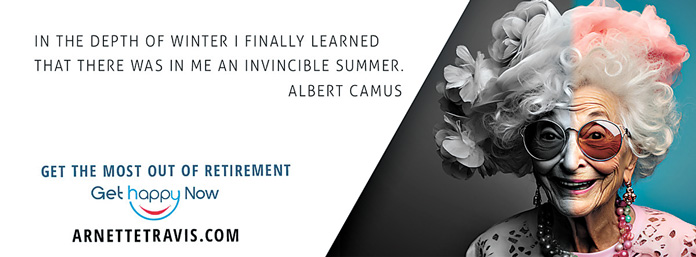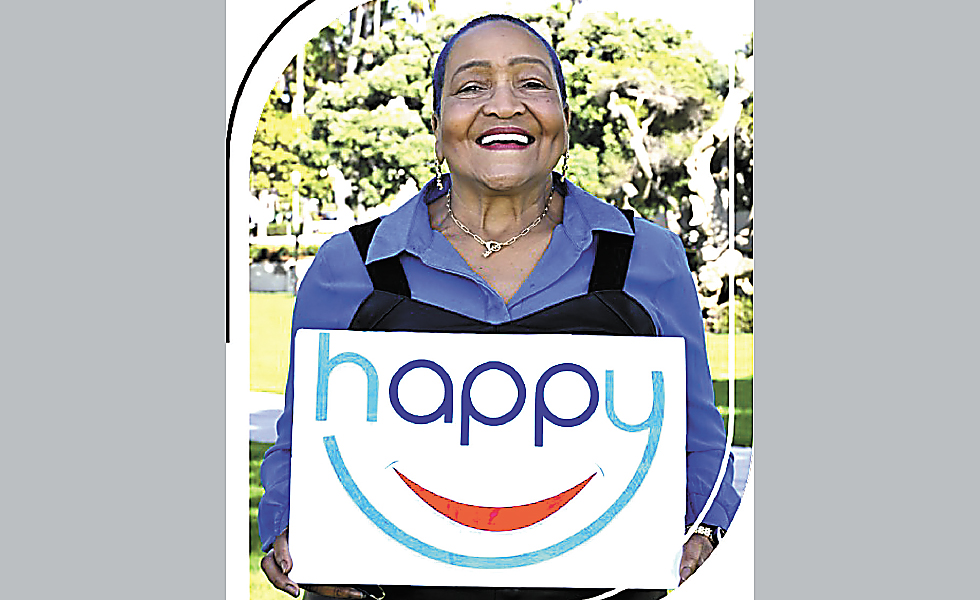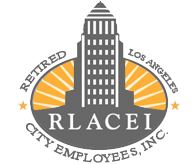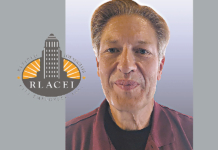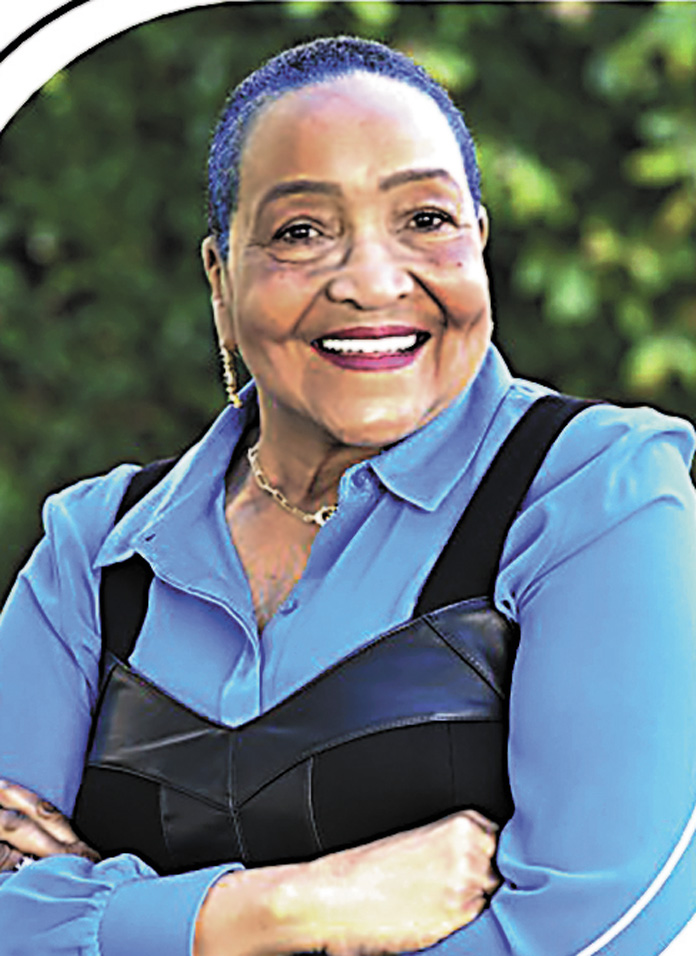
GET HAPPY NOW
By Arnette Travis, Author/Activist/Advocate, RLACEI Contributing Author
W
ith the advent of retirement, aging can take up a lot of space in our mind. While the only alternative to aging is death, the reality is that all around us the effects of aging on people we know (and ourselves) are a fact of life, whether they be good or bad. What are your thoughts about aging? Are you looking at a glass half empty or a glass that is half full?
If your glass is half empty, your negative thoughts are likely rooted in ageist beliefs. Ageism is expressed in many ways. From attributing the failure to remember something as a “senior moment,” to the replacement of a 60-year-old manager with a younger person because “fresh ideas are needed,” ageist beliefs exist throughout our society.
Ageism marks older people with the same negative stereotyping that is found in racism and sexism. And like the other “isms,” ageism is often characterized by injustice and harm, limited power and opportunities, even deprivation of rights, such as the denial of certain medical procedures or treatments to elderly patients.
The half-full glass exemplifies the only aspect of life that is under our control: our attitude. The choice to put a positive spin on aging supports the goal of living longer, healthier and happier lives.
According to Dr. Becca Levy, a leading expert on the psychology of successful aging, having a positive attitude toward aging can extend life expectancy an average of 7.5 years. Levy examines the mind-body connection, wherein health problems that were thought to result from the aging process (including the way genes operate), are directly influenced by negative thoughts about aging and can be improved upon by positive age beliefs.
In her groundbreaking book, Breaking the Age Code: How Your Beliefs About Aging Determine How Long and Well You Live, Dr. Levy recommends a three-pronged ABC method to adopt positive age beliefs:
- Awareness — Identifying where negative and positive images of aging are found in society.
- Blame — Understanding that health and memory problems can be the result, at least in part, of the negative age beliefs we acquire from society.
- Challenge — Take action against ageism so that it is no longer harmful!
Aging.
It beats the alternative.
The ability to control your attitude is the ultimate self-empowerment tool. Taking action to think positively about aging will lead you to a longer, healthier, happier life that no one can take from you or use to exercise undue control over you.
